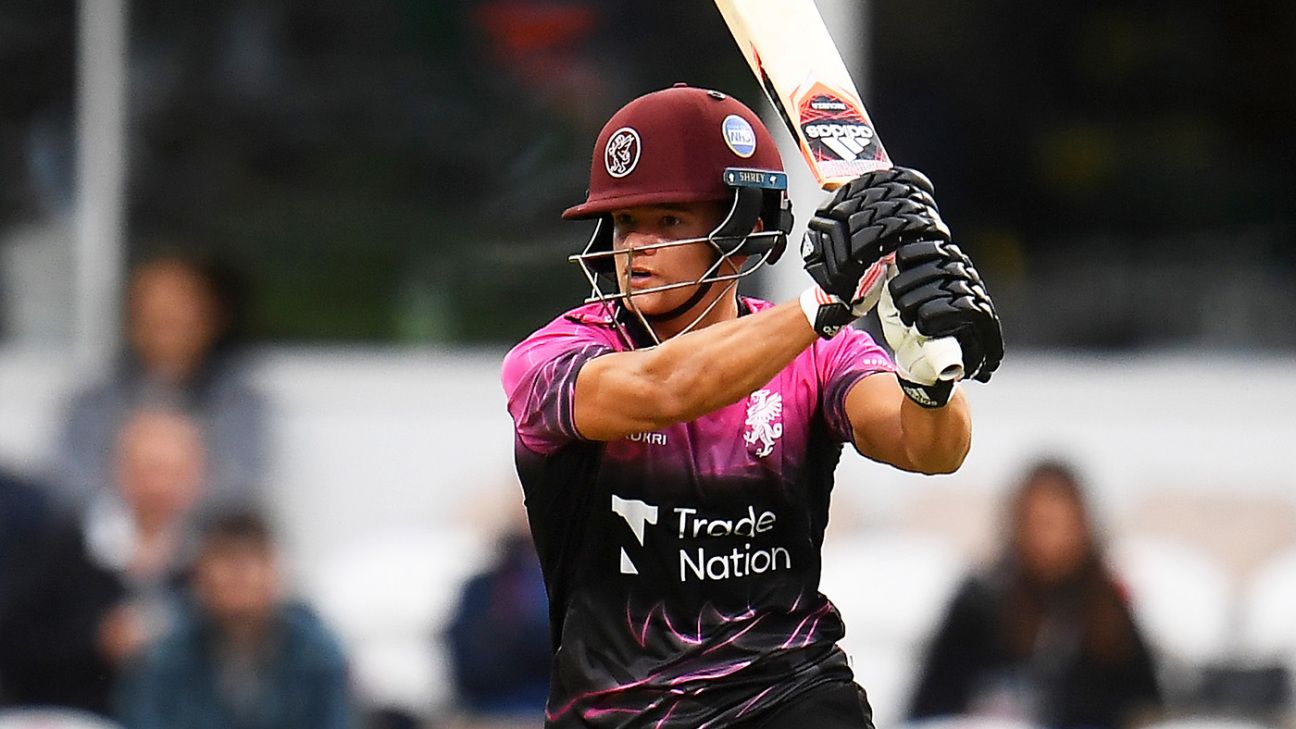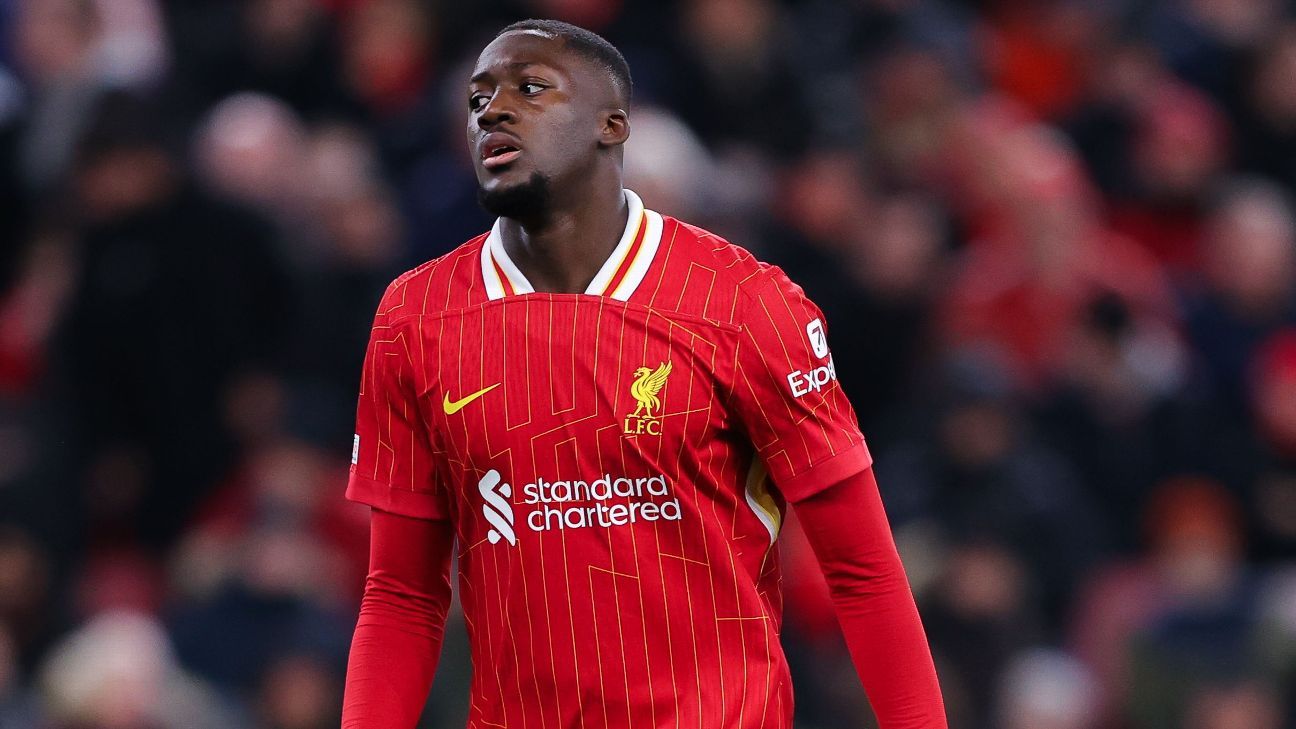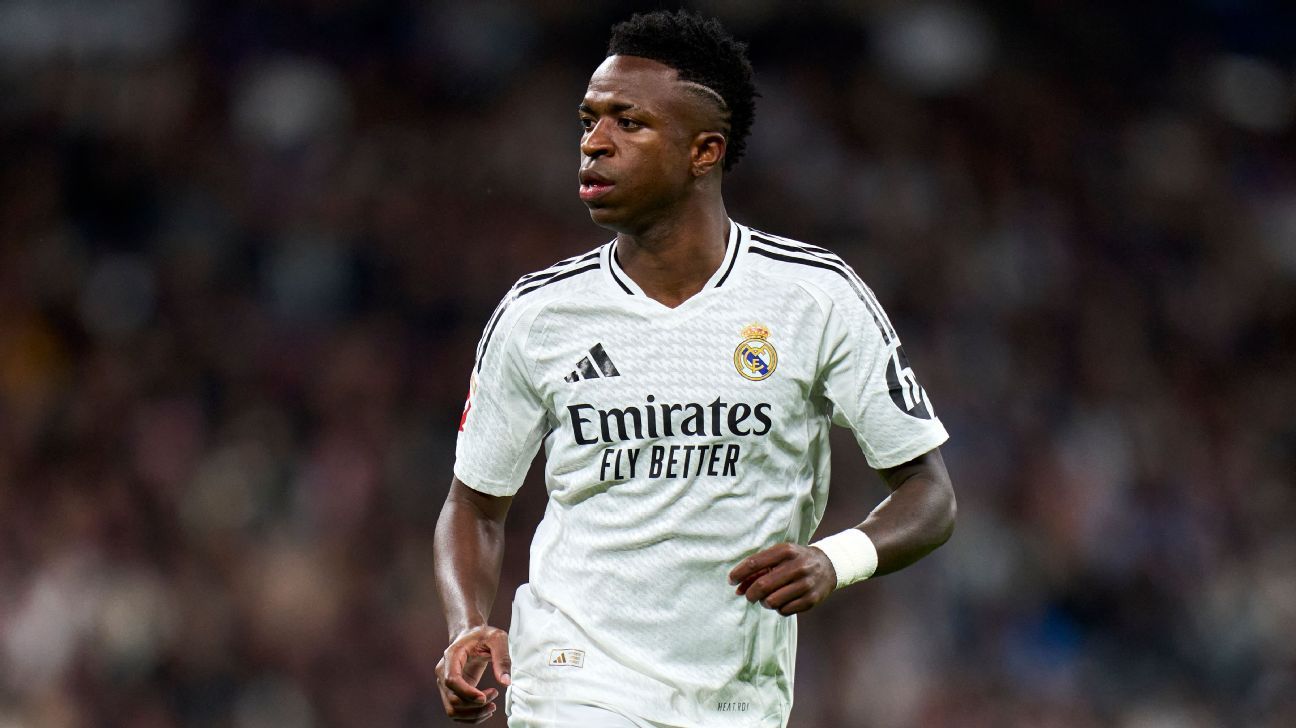
In early 2019, Somerset filmed short video clips of their academy players for their YouTube channel to introduce them to the club's supporters.
It might be a difficult answer to understand - and one that shouldn't be taken too seriously - but Smeed is part of a generation who have grown up with the tournament. From 2010-14, the IPL was the only top-level cricket available on free-to-air TV in the UK, regularly drawing in half-a-million viewers per afternoon on ITV4 despite the contempt with which it was viewed by English administrators.
It might prove to have been the highlight of his red-ball career. Smeed insists he has not retired from multi-day cricket but, barring some creative selection for England's Test team, it is difficult to see a route back for him. Mo Bobat, England's performance director, saw his decision coming; speaking on an episode of the Unofficial Partner podcast, recorded last month, he suggested that Smeed "could have a purely white-ball career".
And why shouldn't he? There is an assumption built into English cricket that Tests should always come first, but the sport has not been set up that way for those of us who have grown up in the 21st century. The genie has been out of the bottle since Smeed was a toddler.
In practice, Smeed's decision may not change much: he has never played a first-class game and the depth of talent nurtured in Somerset's academy means he finds himself a long way down the pecking order in their Championship team. His short-form dominance and long-form struggles have created the perfect storm for a unique decision.
If Smeed finds a suitor in next month's IPL auction - and his deal with MI Emirates in the ILT20 hints that he might - then he would have missed the first two months of the season regardless; if he does not, he will have two months between the end of the PSL and the start of the Blast to rest and then train, rather than playing second-team cricket in "an empty field with the wind howling", as he put it.
While money is clearly not his primary motivation - he has already earned huge sums from cricket while most of his friends are racking up debt from their student loans - his move makes financial sense, too. When English players without national contracts miss games to play in the IPL, they are obliged to pay a significant percentage of their salary back to their counties; as a white-ball specialist, Smeed will not have that issue if he gets a deal in 2023.
It might have been obscured by England's Test team under Brendon McCullum, but the game's formats are quickly diverging. An ODI series starts in Australia this week while the Test squad are training in Abu Dhabi; in February, the white-ball team will play warm-up games in Bangladesh during the second Test in New Zealand. Smeed put it simply: "I would much rather be a master of one trade than a jack of all."
In due course, Smeed will become a superstar: his fearless hitting and raw power have already attracted him to franchises across the world and his decision this week marks him out as an outlier. But he is also part of a tranche of young players who have grown up with T20: do not be surprised if and when others follow his lead.















 Phone: (800) 737. 6040
Phone: (800) 737. 6040 Fax: (800) 825 5558
Fax: (800) 825 5558 Website:
Website:  Email:
Email: 






